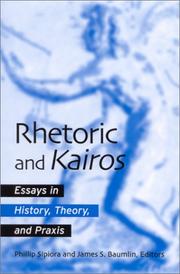| Listing 1 - 4 of 4 |
Sort by
|
Book
ISBN: 9781501352089 1501352083 1501352091 1501352105 1501352113 1501381334 Year: 2020 Publisher: New York : Bloomsbury Academic,
Abstract | Keywords | Export | Availability | Bookmark
 Loading...
Loading...Choose an application
- Reference Manager
- EndNote
- RefWorks (Direct export to RefWorks)
Ida Lupino, Filmmaker begins with an exploration of biographical studies and analytical treatments of Lupino's film and television work as director, moving forward to assess Lupino's career in film and television with particular attention given to Lupino's singular, pioneering achievements and her role(s) within the cultural milieu(s) of her time, particularly the representation of women in cinema. Each chapter includes a close analysis of the film or television work with insights drawn from film history and cultural/gender studies to demonstrate that Lupino was a significant directorial figure in the development of film, especially in the late 1940s and early 1950s-and in television extending well into the 1960s. Lupino left her imprint on filmmaking and her canon of film and television work continue to influence Hollywood movie making.The contributors to this volume assess Lupino's main strengths as a filmmaker-her treatment of narrative movement, plotting, dialogue, gender roles, and uses of tradition representations of men and women in frames of parody and satire. The book collectively examines the successes (and failures) of Lupino's directorial career, including focusing on the reasons why she initially proved to be so strategic to the progress of women behind the camera.

ISBN: 0791489388 0585442525 9780585442525 0791452336 9780791452332 0791452344 9780791452349 9780791489383 9780791489383 Year: 2002 Publisher: Albany, NY State University of New York Press
Abstract | Keywords | Export | Availability | Bookmark
 Loading...
Loading...Choose an application
- Reference Manager
- EndNote
- RefWorks (Direct export to RefWorks)
This collection offers the first comprehensive discussion of the history, theory, and pedagogical applications of kairos, a seminal and recently revised concept of classical rhetoric. Augusto Rostagni, James L. Kinneavy, Richard Leo Enos, John Poulakos, and John E. Smith are among the international list of scholars who explore the Homeric and literary origins of kairos, the technologies of time-keeping in antiquity, the role of "right-timing" in Hippocratic medicine, the improvisations of Gorgias, as well as the uses of kairos in Isocrates, Plato, Aristotle, Cicero, and the New Testament. Broad in its scope, the book also examines the distinctive philosophies of time reflected in Renaissance Humanism, Nineteenth-Century American Transcendentalism, Oriental art and ritual, and the application of kairos to contemporary philosophy, ethics, literary criticism, rhetorical theory, and composition pedagogy.--
Kairos (The Greek word) --- Rhetoric, Ancient. --- Rhetoric. --- Greek language --- Ancient rhetoric --- Classical languages --- Greek rhetoric --- Latin language --- Latin rhetoric --- Language and languages --- Speaking --- Authorship --- Expression --- Literary style --- Etymology --- Rhetoric --- Kairos (The Greek word). --- Rhetoric, Ancient
Book
ISBN: 9780141394985 Year: 2014 Publisher: London : Penguin Books,
Abstract | Keywords | Export | Availability | Bookmark
 Loading...
Loading...Choose an application
- Reference Manager
- EndNote
- RefWorks (Direct export to RefWorks)
The definitive Norman Mailer collection, as he writes on Marilyn Monroe, culture, ideology, boxing, Hemingway, politics, sex, celebrity and - of course - Norman MailerFrom his early 'A Credo for the Living', published in 1948, when the author was twenty-five, to his final writings in the year before his death, Mailer wrestled with the big themes of his times. He was one of the most astute cultural commentators of the postwar era, a swashbuckling intellectual provocateur who never pulled a punch and was rarely anything less than interesting. Mind of an Outlaw spans the full arc of Mailer's evolution as a writer, including such essential pieces as his acclaimed 1957 meditation on hipsters, 'The White Negro'; multiple selections from his wonderful Advertisements for Myself; and a never-before-published essay on Freud. The book is introduced by Jonathan Lethem.
Digital

ISBN: 9781474403269 9781474403252 Year: 2022 Publisher: Edinburgh Edinburgh University Press
Abstract | Keywords | Export | Availability | Bookmark
 Loading...
Loading...Choose an application
- Reference Manager
- EndNote
- RefWorks (Direct export to RefWorks)
| Listing 1 - 4 of 4 |
Sort by
|

 Search
Search Feedback
Feedback About UniCat
About UniCat  Help
Help News
News